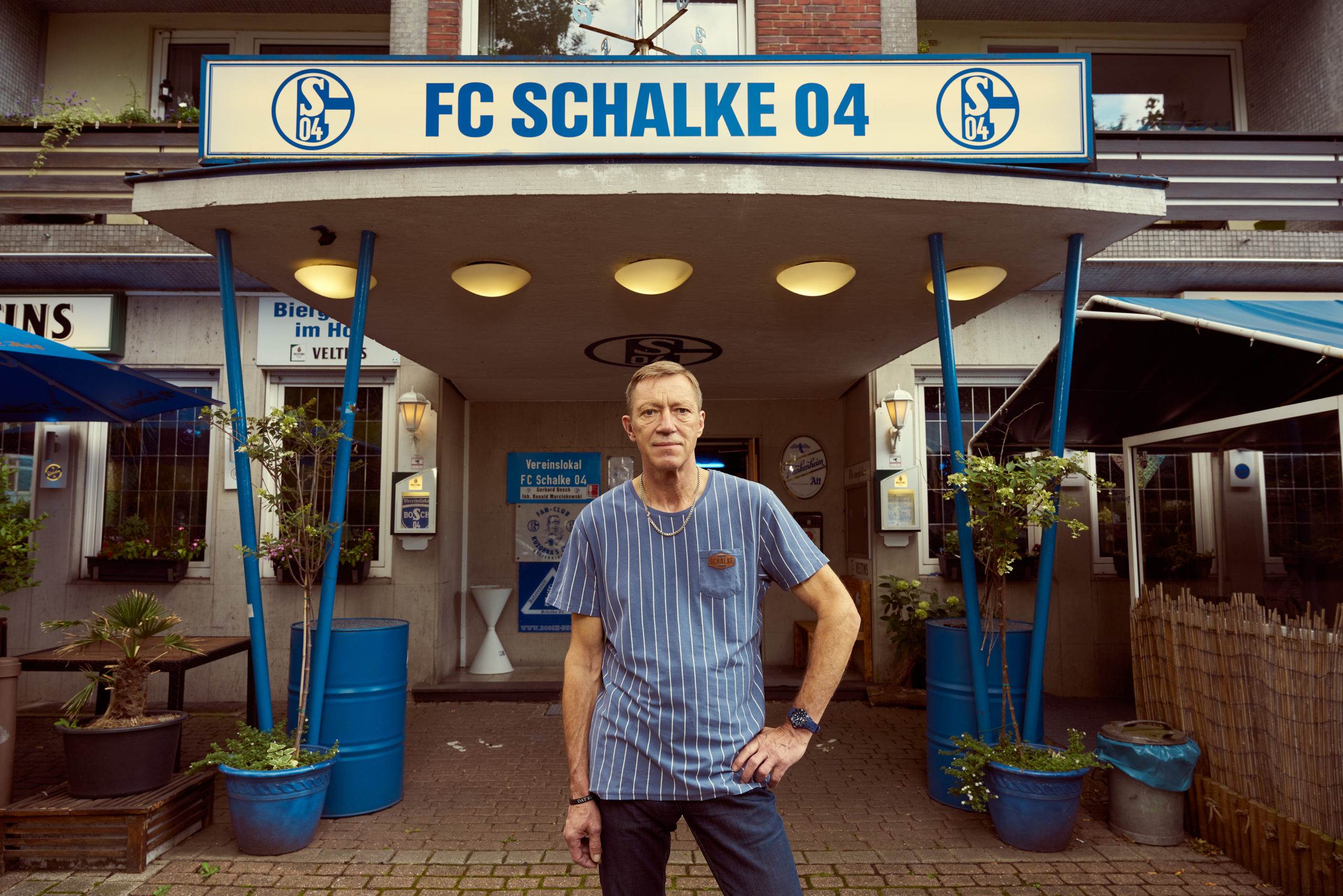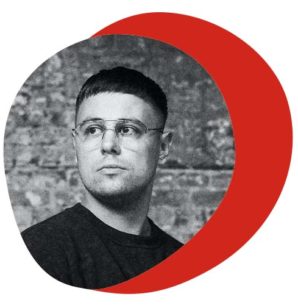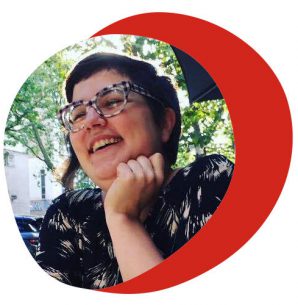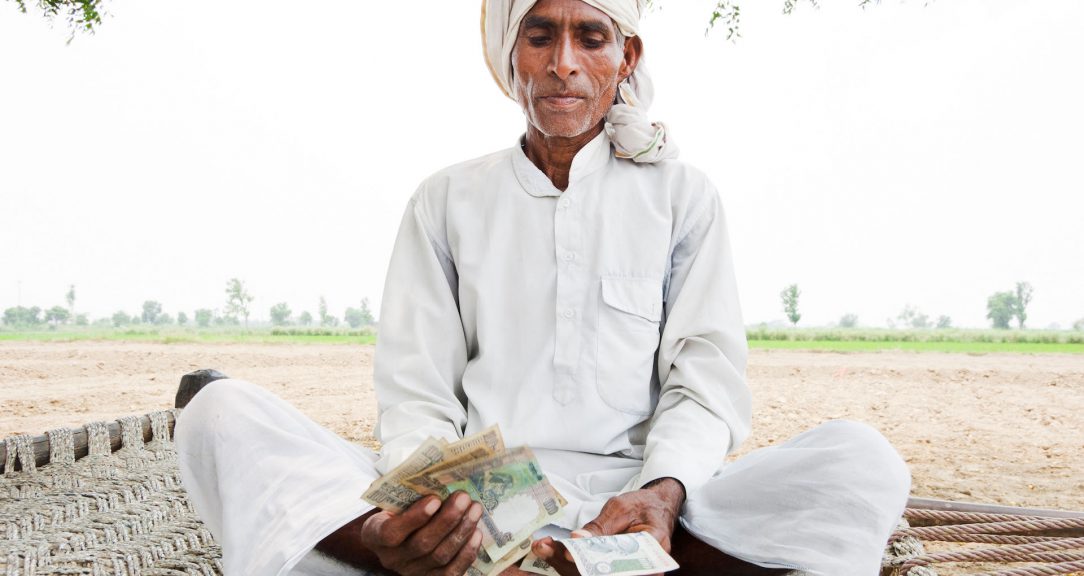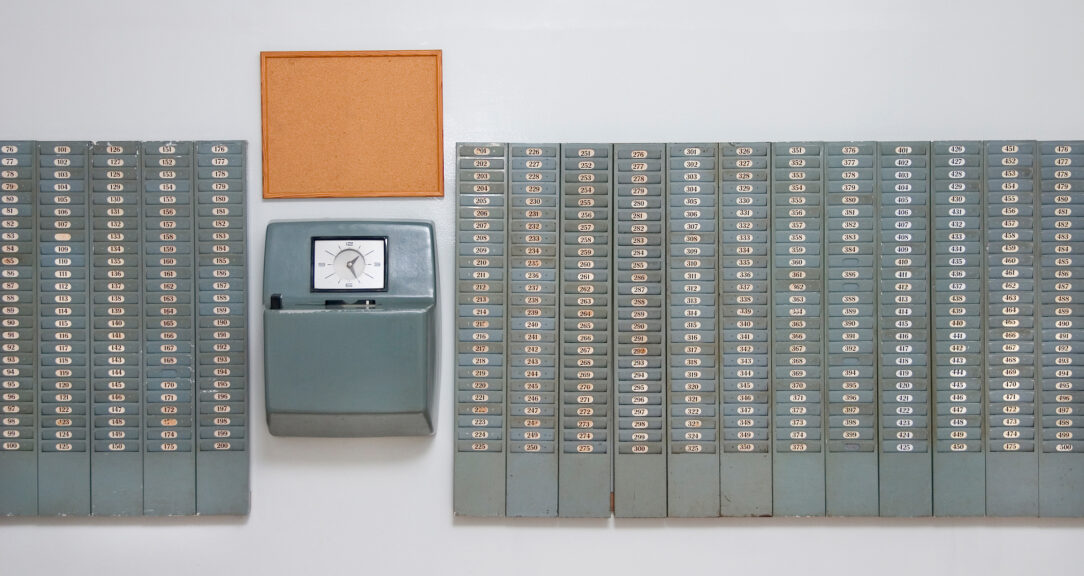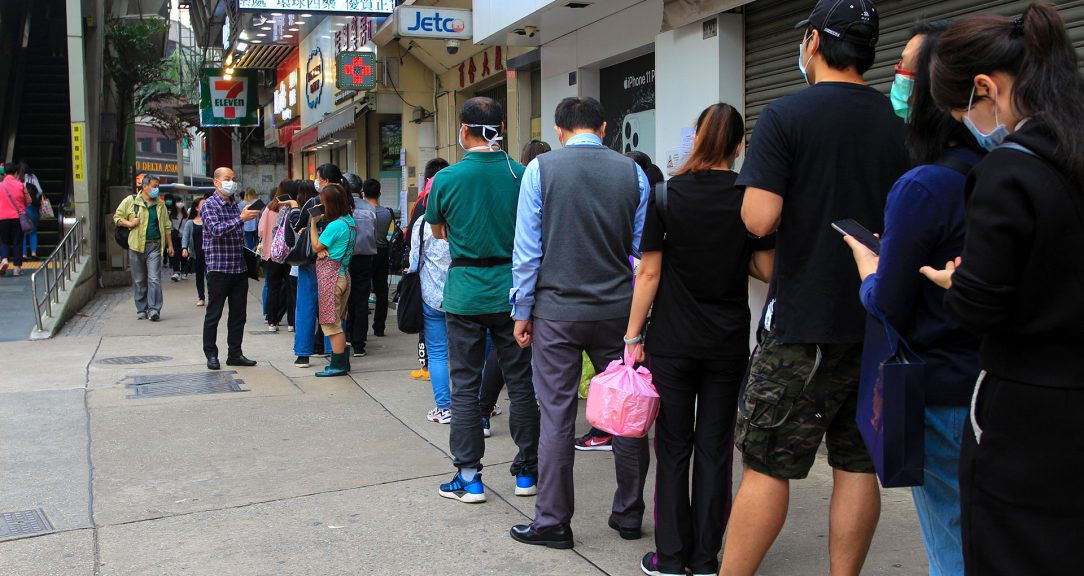The industrial Ruhr area of western Germany is one of the most densely populated regions of Europe. Its residents take pride in their worker culture and multicultural communities, but they’ve seen hard times since the coal industry wound down around the millennium.
Gelsenkirchen, one of the many Ruhr cities, has a population of only 260,000, but its football club, Schalke 04, has almost 160,000 supporting fans worldwide. Historically, it’s been one of the most successful clubs in the Bundesliga football league but was demoted to the second division this season. Pandemic closures of sporting events meant big financial losses last year, and the number of Schalke’s employees dropped from nearly 2,000 in 2019 to 1,640 in 2020.
Gelsenkirchen’s population peaked at nearly 400,000 in 1960, with many people employed in coal mining, coke processing and steelworking. As those businesses declined and closed, the population also fell. Today, the city’s largest employers are a local hospital system, an oil refinery and public utilities.
Gelsenkirchen at a glance
Lately, Gelsenkirchen is known for having the highest unemployment rate of any city in Germany, often double the national average. It also has the highest rate of child poverty in the country.
When Gelsenkirchen came in dead last on a list of Germany’s 401 most liveable cities in 2018, Olivier Kruschinski turned the ranking into a hashtag — #401ge — that people now use to show off the nice sides of the city. He and many other proud residents pay no mind to what outsiders think, though they know there’s room for improvement. Here’s how people the city got through the pandemic, in their own words.
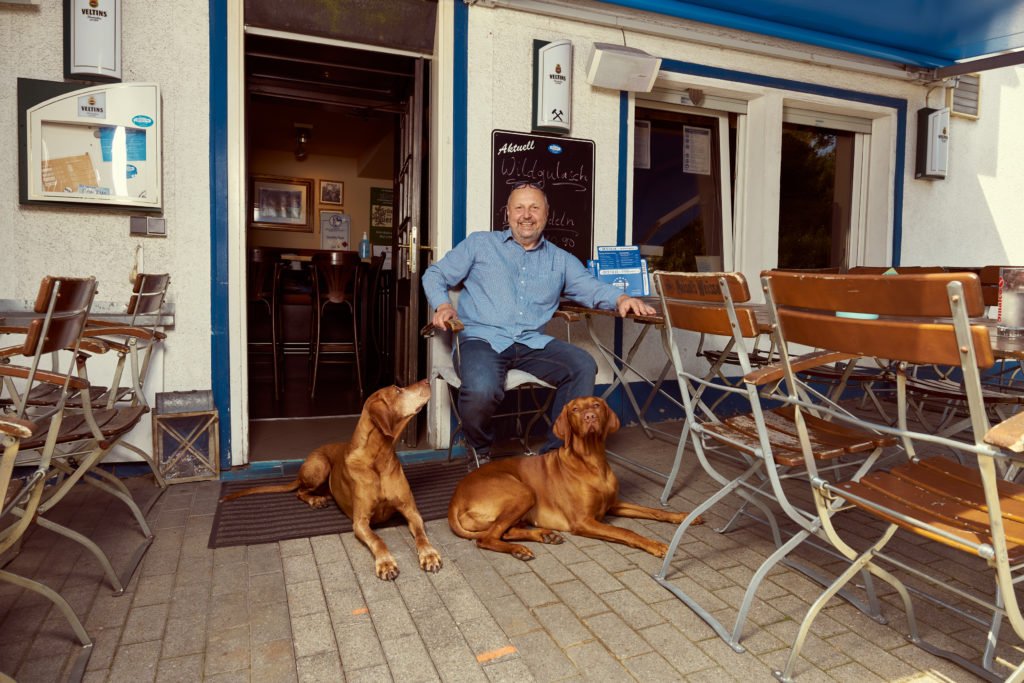
Thommi Wesselborg
Wesselborg owns Destille, a pub popular with Schalke fans as it’s just down the street from the Veltins Arena.
“I can hardly remember a time before the pandemic anymore. But business was good; there was always lots to do. We’d work 70- or 80-hour weeks, six or seven days per week, centered around events in the arena and Schalke games, of course. During one game day, we’d sell about 450 liters of beer.
Before the pandemic, I had two full-time employees and 12 “mini-job” workers, who work 10 hours per week for €450 ($522) per month. All my workers got about €10 per hour, plus tips, naturally.
And then it all stopped. We had to come up with new ideas: What can we do to avoid being forgotten? How can I keep my people busy? What can we do for the people in the lockdown? We opened up a kiosk pretty quickly, selling drinks and food from a window of the pub. We changed our hours to open at 6 a.m. for breakfast, baking fresh bread, and I actually hired some new people to work on these new ideas, like offering a lunch menu. We only reached at most 20% of our previous sales, but at least we could keep people employed.
I took out one of the German government’s pandemic loans to do a thorough renovation of the pub while we had to be closed. I also received two rounds of emergency business assistance. Now I have about half of the employees I used to, and it hasn’t been possible to do any long-term planning. I hope I can find a successor at some point — I’ve been in this business 36 years. But it’s nice to see people going to restaurants again. I think the pandemic increased people’s appreciation of what we do, and that ultimately carried us a little bit through the crisis.”
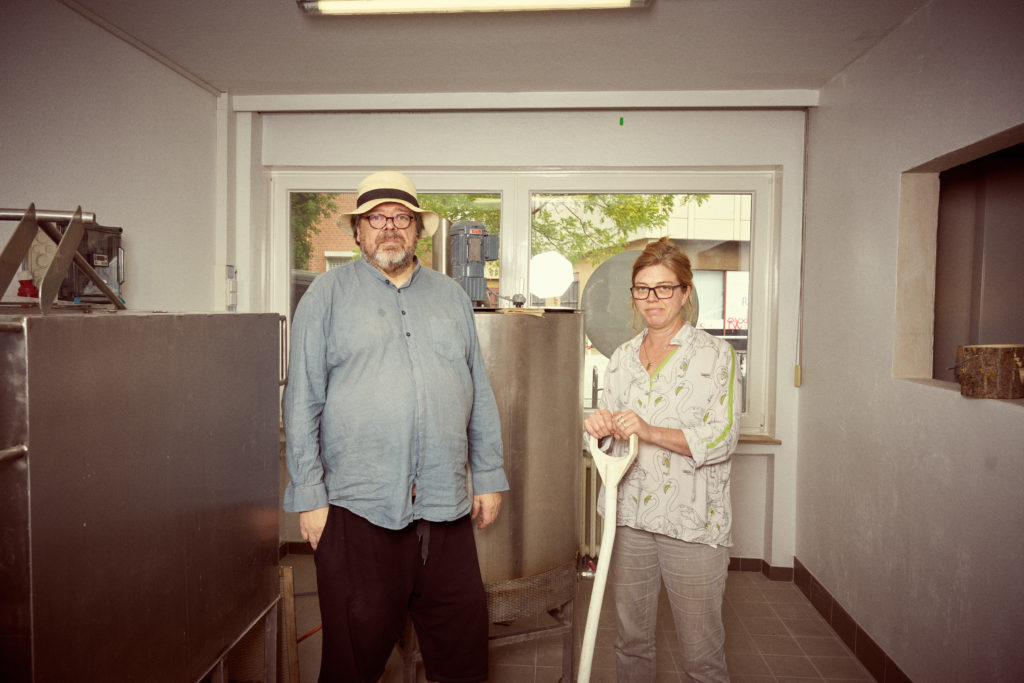
Anja Michels
Michels runs GeBräu, a brewery producing unclarified lagers known as Kellerbier, with Volker Uthe. Gelsenkirchen has a long brewing tradition, but there weren’t any active breweries when GeBräu opened in 2015.
“When we started GeBräu, both of us were still working full-time jobs while running the business completely ourselves. Eventually we were working eight-hour days, and even longer when we sold beer at market events. That might be from 10 a.m. to midnight, selling 240 liters of beer — eight kegs.
In early 2020 our investments were finally starting to pay off. And then it all went almost to zero. We were still able to sell some beer through beverage distributors, but everything we had previously sold for catering or events was gone. That’s what actually keeps any brewery alive — gastronomy and events.
No one could say exactly what was in store for us and how long the whole thing would take. We were worried, because we had just moved, and those costs were meant to be covered by our sales. We have one full-time employee and a few mini-jobbers, but we were all on reduced work from September 2020 to June 2021. We were worried for a long time that we wouldn’t survive the crisis.
Luckily, we applied for and received pandemic emergency aid for modernization and digitization. This enabled us to expand our store, which had come to a complete standstill. We still feel like it’s an uphill battle: Visitor numbers still aren’t what they used to be. But through the funding, we are at least well positioned so that as soon as it starts again, we can go full throttle.”
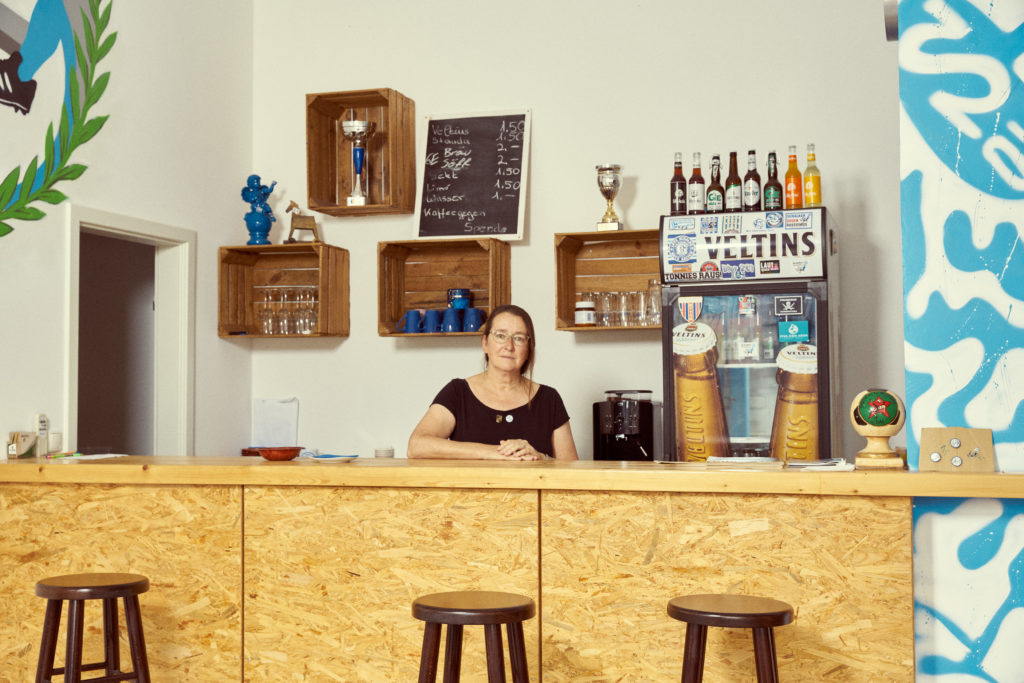
Dr. Susanne Franke
Though she was born in Gelsenkirchen, Franke co-chairs the nonprofit Schalke Fan Initiative from Cologne. The organization unites fans against racism, discrimination, sexism and homophobia, and runs a fan shop on game days.
“Since we don’t all live in the same city or have seasonal tickets in the same part of the arena, working together is great. The fan shop is the natural hub for our 350 members. We open every home game, and it is also a meeting place for our working groups and other visitors.
On a home game day, we would sell about 10 shirts as well as 10 other items such as scarves and mugs, plus about 250 bottles of beer and soft drinks. The biggest problem was determining who would close up the store, as we all obviously wanted to get to the game on time!
When lockdowns began, we closed for months. We didn’t know what to do with the shop, and we had to pour out liters upon liters of expired drinks. It was painful — a part of our lives we had enjoyed so much suddenly went away. We were dramatically unprepared and had to reinvent ourselves.
For us, it was clearly a call to action: We have to do something, and we have to do it differently than before. We actually gained new members during the pandemic — they pay €30 per year; just €15 for students. We survived on those fees and a grant we received for youth work.
Club life has not yet recovered. We know that what we’ve built up digitally, all our projects, will continue. For the Schalker Meile (the stretch of road leading to the arena), I wish for a strong resilience. The pandemic has been just another in a long line of setbacks. Schalke is the biggest legend in Gelsenkirchen, but at the same time this part of the city symbolizes the biggest failure of structural change. The city has failed to create new prospects and jobs.”
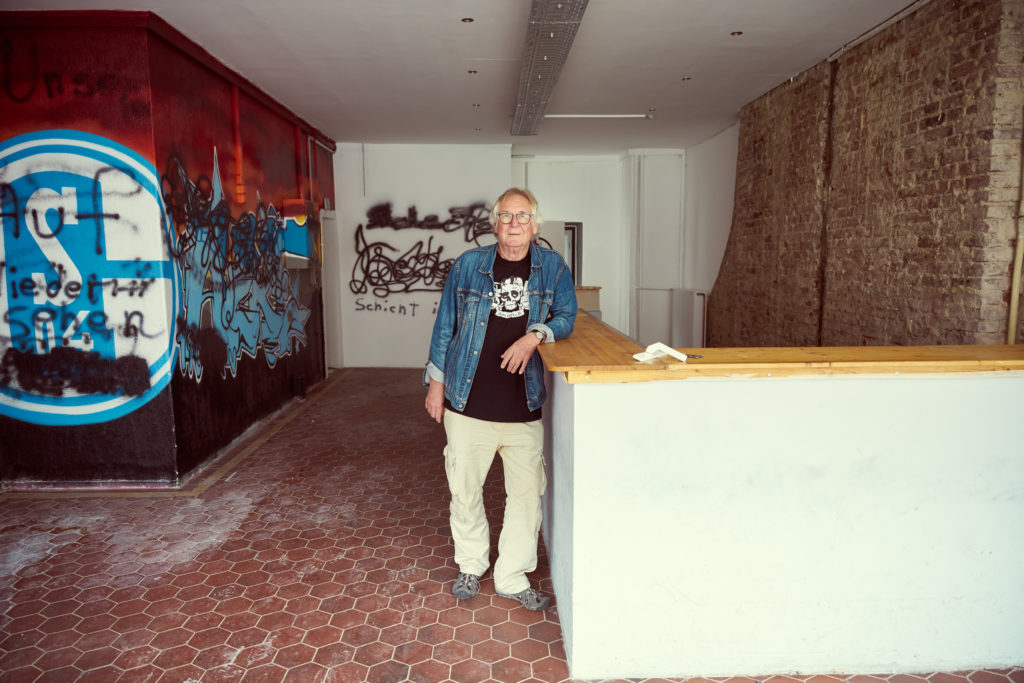
Mannfred Beck
Beck is a volunteer for the nonprofit Schalke fan club Anno 1904, which has a clubhouse and regular social offerings in non-pandemic times.
“We are a meeting place for fans and our 60 members, but it is also about getting things moving in the neighborhood, such as organizing festivals and bringing the people together. We had regular office hours with a self-help group, an inclusion discussion group and advice for people with disabilities.
But our business basically came to a standstill in March 2020. The number of people allowed inside was limited to just two. The fixed costs of the clubhouse were a big problem — about €1,000 per month, with just €250 coming in from member fees. We would have gone bankrupt very quickly if we hadn’t received such big support from the fan scene and the city.
At the beginning none of us thought that the pandemic closures would drag on for so long. If we had known, we would have pulled the ripcord sooner and given up the clubhouse. We’ve basically paid a year of rent for nothing.
The Schalke neighborhood has been increasingly isolated over the years, with some problem corners. Nevertheless, this neighborhood belongs to the Schalke legend. Initiatives are growing, and we all hope we can bring the district forward again. There’s a vacant lot next to our old clubhouse, and we would like to open a neighborhood garden and set up a beer garden there on game days.”
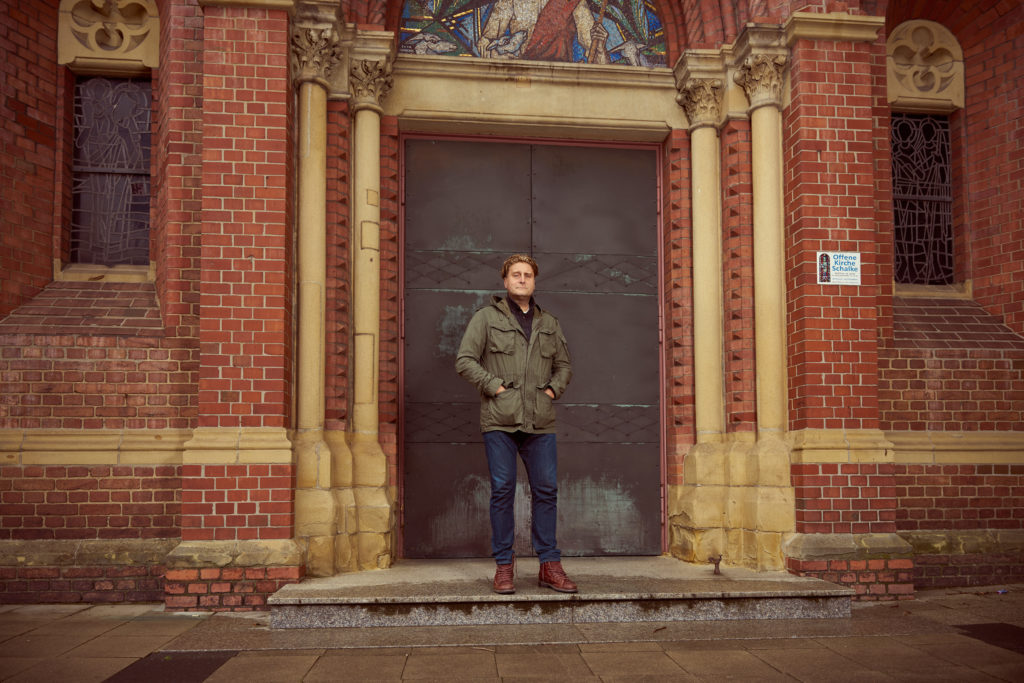
Olivier Kruschinksi
This native Gelsenkirchener is self-employed, giving tours about the history and legend of the Schalke football club and its home.
“On average before the pandemic, I did about 15 to 20 tours a month, each lasting three hours with 20 to 25 participants. Depending on the customers’ needs, I had to plan how many places we would visit and perhaps book a restaurant. My tours cover many different topics, including mining history and football history.
Schalke is an open-air museum. There is no other place in the Ruhr region where industrial history, immigration history, mining history and football history come together as closely and compactly as here. I love my job — it’s a career and a calling.
But then I was no longer allowed to travel with guests, and it all came to a standstill. My first thought was that there was a need for solidarity. And the second thought was that solidarity will carry us through the crisis. I couldn’t earn any money, and I wasn’t eligible for any government aid, so I fell through the cracks.
Now I can do tours again, because they’re mostly outdoors, but mostly private tours rather than public ones. People are still afraid — of the virus, for their health and of each other. It makes my stomach hurt. We have a changed situation, and we have to live with it.”
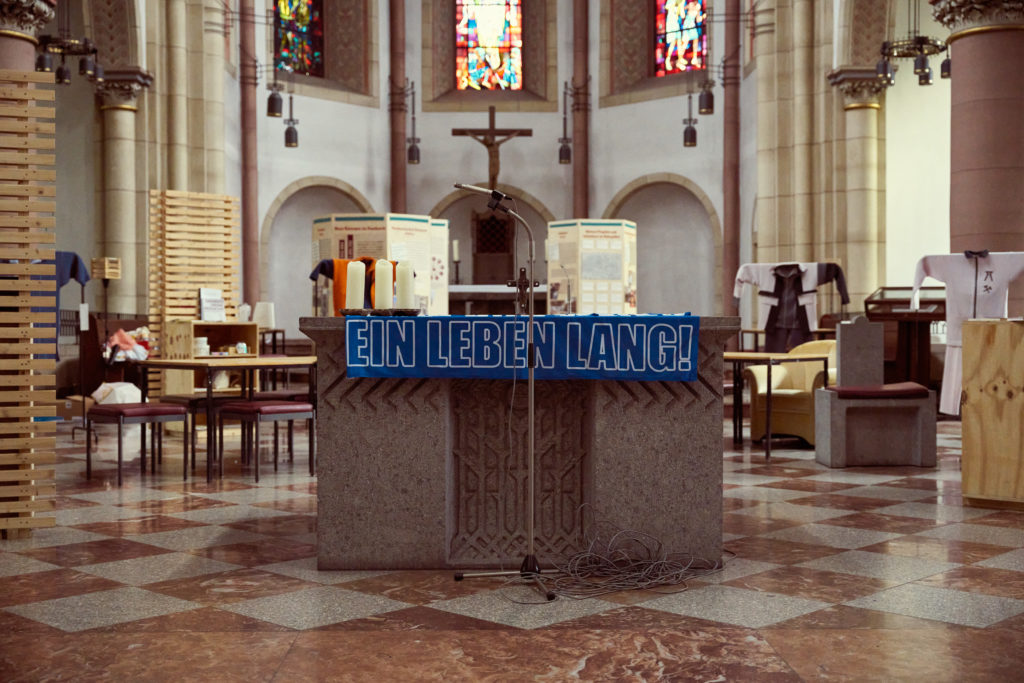
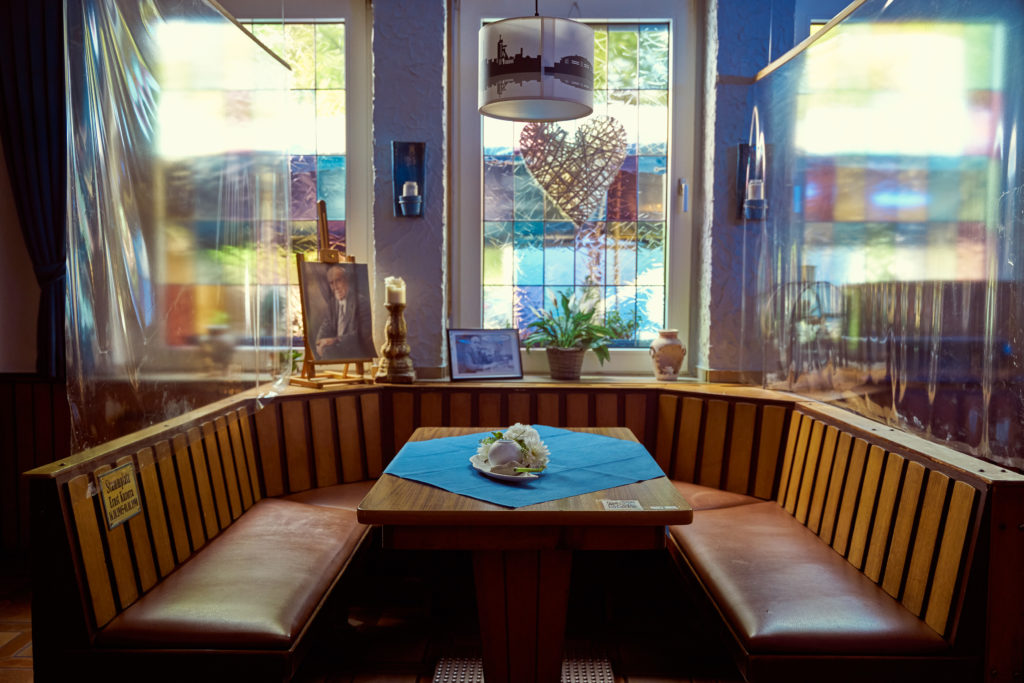
Ronny Marcinkowski
Marcinkowski runs the legendary pub Clubhouse Schalke04 Bosch, right in the heart of the Schalke neighborhood.
“Before the pandemic, we were always busy. People knew about our good kitchen, and when Schalke played, the place was full. I’d normally work from noon to midnight, but if there was a home game, I’d start in the morning and work through to the next morning. We sold about 2,500 liters of beer per month.
The special thing about Schalke is the football, the people, the camaraderie, the togetherness. The district has problems like any other — restaurants have closed, and life is not easy. But when Schalke plays and people meet, it’s like one big family.
Then it was suddenly very quiet. Many people no longer wanted to go to restaurants. I still feel that today — people have become fearful. On a good day, I have maybe 50% occupancy compared to before. I thought it would be over after the first lockdown, but as it went on, I had to close again, and it got tight. Before, I had five employees, paid about €10 per hour. Now I just have three.
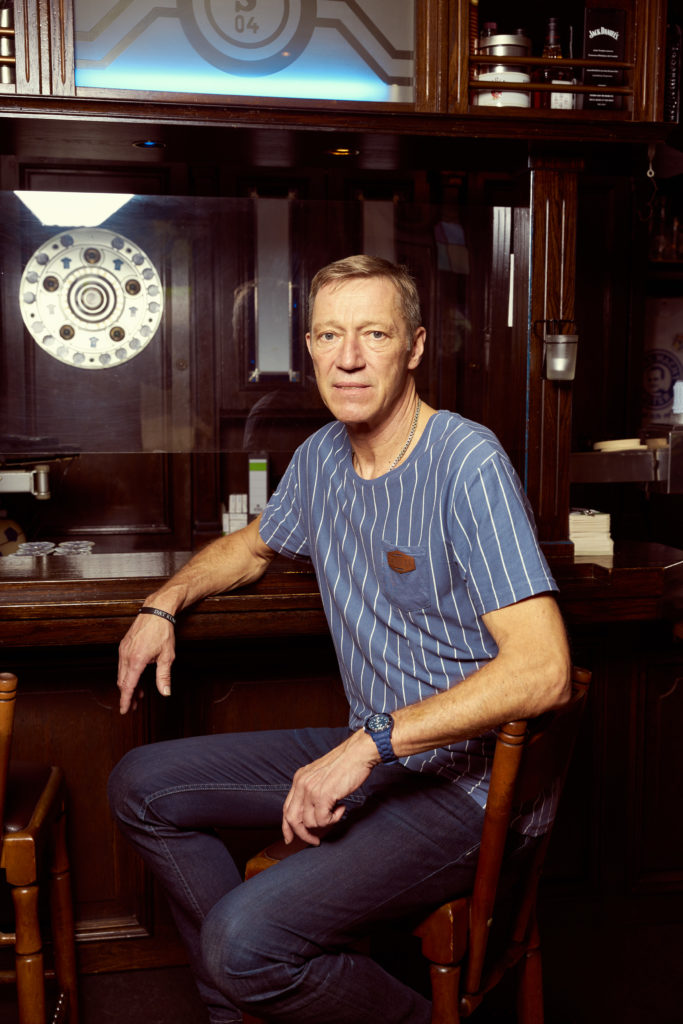
When the people came back to the clubhouse, I had goosebumps. Even without games, people met here, which helped me a lot mentally. The support of the fan clubs saved me. Of course, the state also contributed its share, but my survival came from the fans.
I am confident that we will have a better future. It’s almost impossible to do worse than last year.”
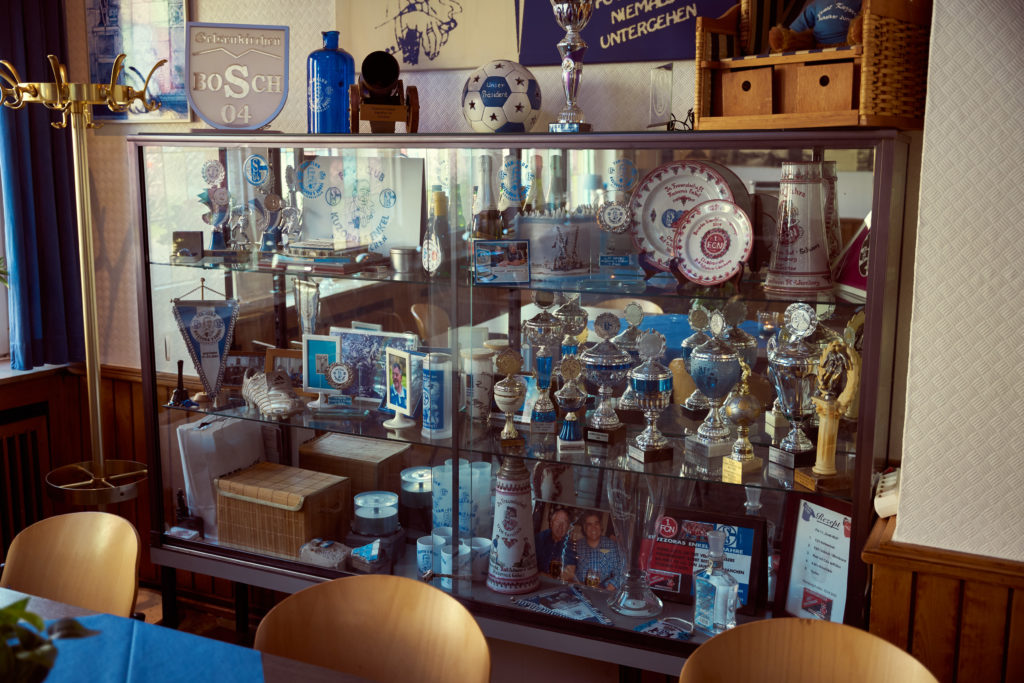
Read more
Sign up to keep up to date with ReThink Q.
